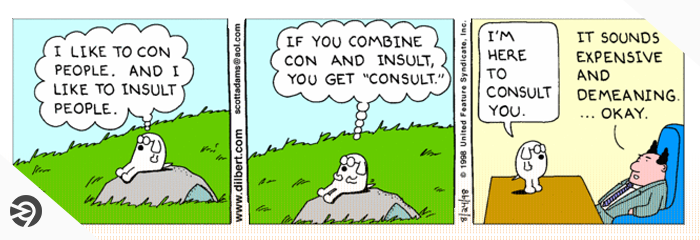Kind of interesting, and from here:
A series of five studies showed that people are more likely to lie, cheat, steal, or endorse doing so when they feel that they are being devalued simply because they belong to particular groups.
This is mostly about minority or gender groups — i.e. African-American, female — being stereotyped, but I’d argue it has bigger repercussions than just that. You can get stereotyped on almost anything, especially in a work context — think about “being the unprofessional one” or “being the dumb one.” There’s this whole thing around work and confirmation bias that people never fully acknowledge, but it’s extremely powerful: people often have a view of you in about 5 minutes, and it can take upwards of years to change that view. That’s by no means fair, but it is deeply the reality of the situation. That’s a version of a stereotype: a quickly-reached, easily-drawn, hard-to-refute assumption about someone else.
The older I’ve gotten and more places I’ve worked, I’ve always thought about this idea of spending less time with people like yourself. If you do that, you’re basically becoming a more diverse person/embracing diversity, and that kind of attitude can be fatal to stereotypes. (If you’re actually getting to know people different from you, it’s harder to have stereotypes around them, per se.) One of the core problems with work is that we often group ourselves around people at the same level or people on the same team, which makes it hard to become comfortable with different types of ideas. When you can’t embrace difference and you cluster yourself in silos all the time, how is anything going to really move forward? And when you start making assumptions about others because you lack the context or ‘prism of difference’ to understand who they really are, what’s going to happen?
Well, according to those researchers at Stanford cited above, people are going to start lying, cheating, and stealing. This makes sense. Work is not, and has never been, set up according to moral, social, and cultural norms. Humans operate at base due to reciprocity — in part, that prevents us from beating the shit out of each other all day — and companies don’t operate according to that at all. This is just one reason why work isn’t set up to foster innovation.
So, if you have the ability (empathy?) to do so, stop devaluing people for X-reason or Y-idea. Get to know people: who are they? What do they want? Where do they see themselves headed? I know that’s probably not in your purview as a deliverables-focused manager, but — interestingly enough — these are the same social tools that will make you a better manager.

